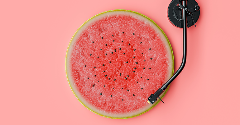News
UK’s Ceder’s gin is debuting in the U.S.
5 Nov 2020Ceder’s non-alcoholic gin debuted in the U.S. this past October, launching in retail and on-premise locations in Connecticut, Delaware, Maryland, Virginia and Washington D.C as well as online.
The alternative gin product arrived on the market two years ago in the UK and has since expanded to 24 different markets with its four different expressions that contain 1-2 calories per serving with zero sugar. In the U.S., the 500-milliliter bottles will retail for $21.99.

Despite a surge in alcohol sales at the beginning of the pandemic, sales have slowed for libations while nonalcoholic beverages have begun to gain ground. According to Nielsen, nonalcoholic beer sales went up 44% in the U.S. in May compared to the same time last year. However, this trend is not a new development resulting from the pandemic.
Nonalcoholic drinks came into the spotlight over the last decade as consumers searched for alternatives to liquor, beer and wine, and trends such as Dry January and Sober October began stretching into other months throughout the year. Sober curious customers, as well as those who opt not to imbibe, have driven low- and no-alcohol beverage sales to climb 32.1% from 2019 to 2022, a fivefold increase over the sales recorded between 2014 and 2019, per IWSR data compiled by the Wall Street Journal.
This rise in popularity has prompted big alcohol manufacturers to begin to target these sober consumers through launches of their own low- or non-alcohol products. AB InBev is working toward converting 20% of its global beer volumes to no- and low-alcohol beers by 2025. And the world’s largest brewery isn’t alone. Heineken and Diageo have also made moves to capitalize on the growth of this segment. In 2019, Diageo took a majority stake in the U.K.’s Seedlip, which was the first nonalcoholic spirits brand on the market.
Things have changed since the days where Seedlip was the only option available. Now boutique distillers around the world are jumping into the category and releasing non-alcoholic versions of liquors from gin to whiskey. Other beverage companies like Coca-Cola that are not traditionally in the alcohol space are also working to respond to the growing trend.
Ceder’s is a newer entrant into the market and features botanicals unique to South Africa’s Cederberg mountains that are blended with Swedish water. Although a craft spirit in a fast-expanding category, Ceder’s will have to come up against a lot of competition in order to stand out.
Related news

Retail landscape lacks nutritious and affordable food, says ATNi
30 Dec 2025
A rapid increase in modern food retail has given retailers growing influence over consumer diets, according to global non-profit ATNi’s latest assessment.
Read more
Debate over ban on ‘meaty’ names for plant-based products reaches stalemate
26 Dec 2025
The debate over a ban on plant-based products using “meaty” terms has reached a stalemate, leaving manufacturers in limbo and still facing overhauls to their marketing and packaging.
Read more
Multi-sensory food and drink products to gain traction in 2026
16 Dec 2025
Trend forecasters predict that sensory elements will play a larger role, helping food and beverage brands differentiate themselves in a competitive market in 2026.
Read more
Big appetite for M&A between European and US food and drink companies
3 Dec 2025
Persistent tariffs on EU food and beverage exports have helped drive record levels of M&A activity between European and US companies this year, according to analysis by ING.
Read more
Non-UPF Program extends certification scheme to entire food industry
30 Nov 2025
The Non-UPF Program has extended its certification scheme to the wider food sector, championing a move towards healthier consumption habits.
Read more
Lancet study links UPFs to chronic disease risk
26 Nov 2025
UPFs are consistently associated with an increased risk of diet-related chronic diseases, according to a comprehensive review of global evidence in The Lancet .
Read more
Concerns swirl around cinnamon’s compliance with EU law
25 Nov 2025
Cinnamon may be a top functional ingredient, but it needs stronger protocols to ensure it meets EU food safety laws and quality standards, say researchers.
Read more
Oat Barista: Innovation for game-changing beverages
20 Nov 2025
Oat Barista is a clean label, sustainable, and innovative drink base specifically designed to create the perfect foam in one single ingredient.
Read more
How younger consumers are redefining ingredient choices and rejecting brand loyalty
18 Nov 2025
Gen Z and millennial consumers’ preferences for transparency, functionality, and purpose are “redefining the very nature of consumption itself”, says SPINS.
Read more
Hybrid formats and flexible positioning to disrupt category norms in 2026
17 Nov 2025
Trend forecasters expect food and drink to move more fluidly across occasions, functions, and formats as consumers seek versatility, novelty, and convenience.
Read more